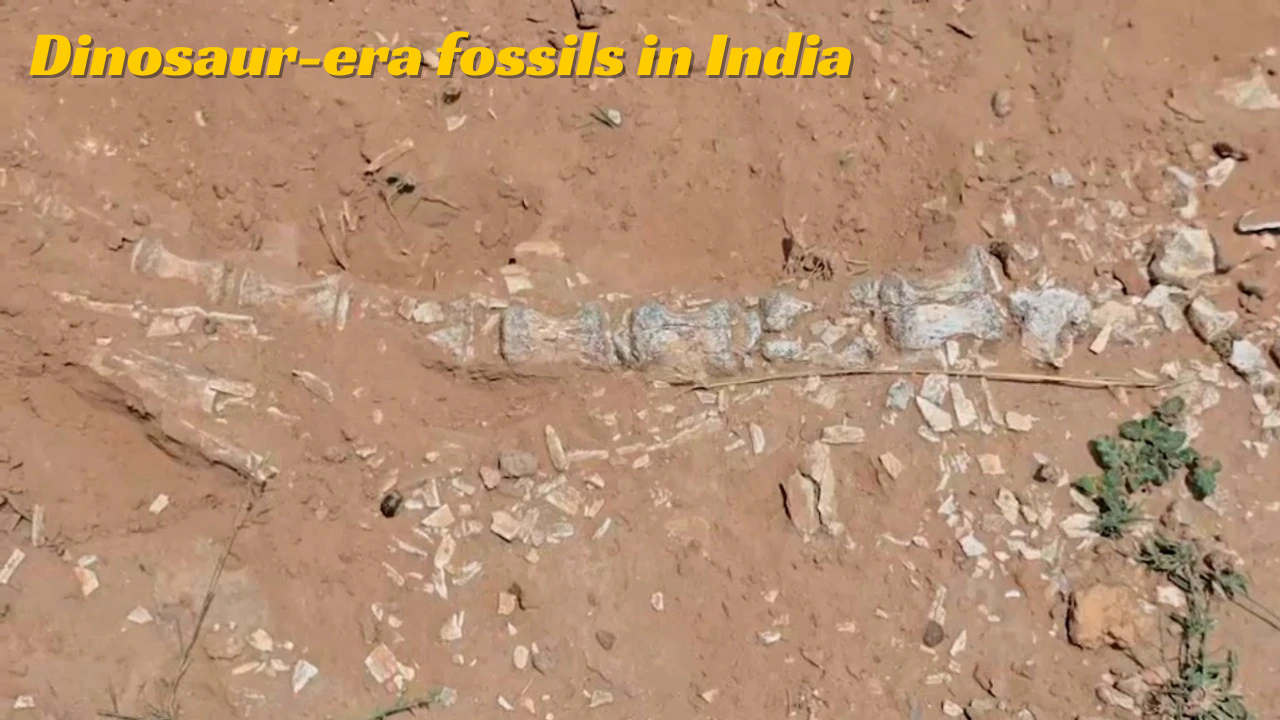In a groundbreaking paleontological discovery, fossil remains unearthed last week in Megha village, located about 45 kilometers from Jaisalmer, have been identified as belonging to a phytosaur—a prehistoric reptile resembling a crocodile. Experts confirm that this is the first well-preserved specimen of its kind discovered in India, offering new insights into the region’s Jurassic-age ecosystem.

The two-metre-long fossil was accidentally found by villagers while digging near a lake. Alert locals promptly reported the remains to the district administration and archaeology department, following which a team of geologists confirmed the find as a phytosaur fossil estimated to be 200 million years old. Alongside the skeleton, researchers also discovered what appears to be a fossilised egg, believed to have belonged to the reptile.
Professor V.S. Parihar, senior paleontologist and Dean of Earth Science System at Jai Narain Vyas University, Jodhpur, explained,
“The fossil represents a medium-sized phytosaur that likely lived near a river and survived by feeding on fish. Though they looked very similar to modern crocodiles, phytosaurs were an entirely different group of reptiles that thrived nearly 229 million years ago, possibly stretching into the early Jurassic age.”
Significance of the Discovery
While a fragmentary phytosaur fossil was reported from the Bihar-Madhya Pradesh border in 2023, experts say this is India’s first definitive, well-preserved phytosaur fossil. Scientists believe the discovery points to a rich prehistoric aquatic ecosystem in the Thar Desert region.
Geologist Dr. Narayan Das Inakhiya, who has been spearheading fossil research in Jaisalmer, said,
“Around 180 million years ago, Jaisalmer was part of the Jurassic landscape where dinosaurs flourished. The Lathi Formation, a 100 km long and 40 km wide stretch of sedimentary rock, preserves evidence of freshwater, marine, and riverine environments. This explains why phytosaur fossils have been found here.”
Experts also emphasised the potential of developing Jaisalmer as a geo-tourism hub, citing the abundance of marine fossils, dinosaur footprints, root fossils, and even well-preserved dinosaur eggs discovered in recent years.
What Are Phytosaurs?
Phytosaurs were semi-aquatic reptiles with striking similarities to crocodiles—short legs, long snouts lined with sharp teeth, heavy bodies covered with armoured scales, and long tails. However, the two groups are not closely related. The primary difference lies in their nostril placement: crocodiles have them at the tip of the snout, while phytosaurs had raised nostrils near their eyes.
A Window Into the Past
This latest discovery is considered the fifth major dinosaur-related fossil find in the Jaisalmer region, joining earlier discoveries such as bone fossils in Thiyat, dinosaur footprints, and a well-preserved dinosaur egg uncovered in 2023.
The newly discovered skeleton, measuring nearly 1.5–2 metres in length, coupled with the fossilised egg, provides scientists with rare insights into vertebrate evolution in India. Experts believe that ongoing studies, including carbon dating, will help establish whether the fossils belong solely to phytosaurs or also represent other prehistoric reptiles from the Jurassic era.
Geologist Dr. Inakhiya concluded,
“These fossils are of immense scientific importance, helping us understand the ancient biodiversity of western Rajasthan. With proper conservation and research, Jaisalmer could emerge as one of India’s most significant fossil heritage sites.”
